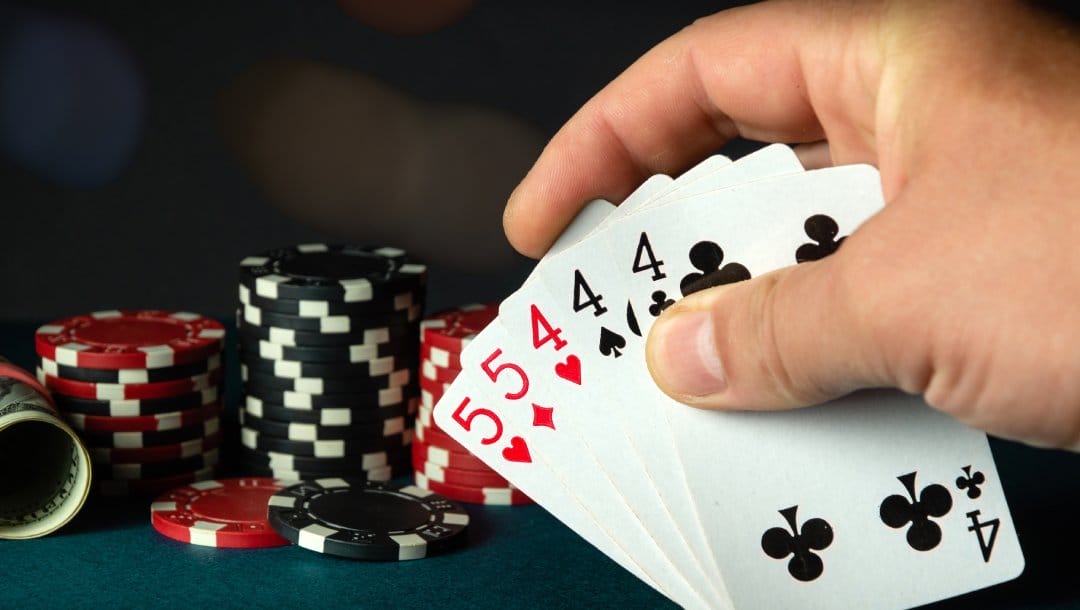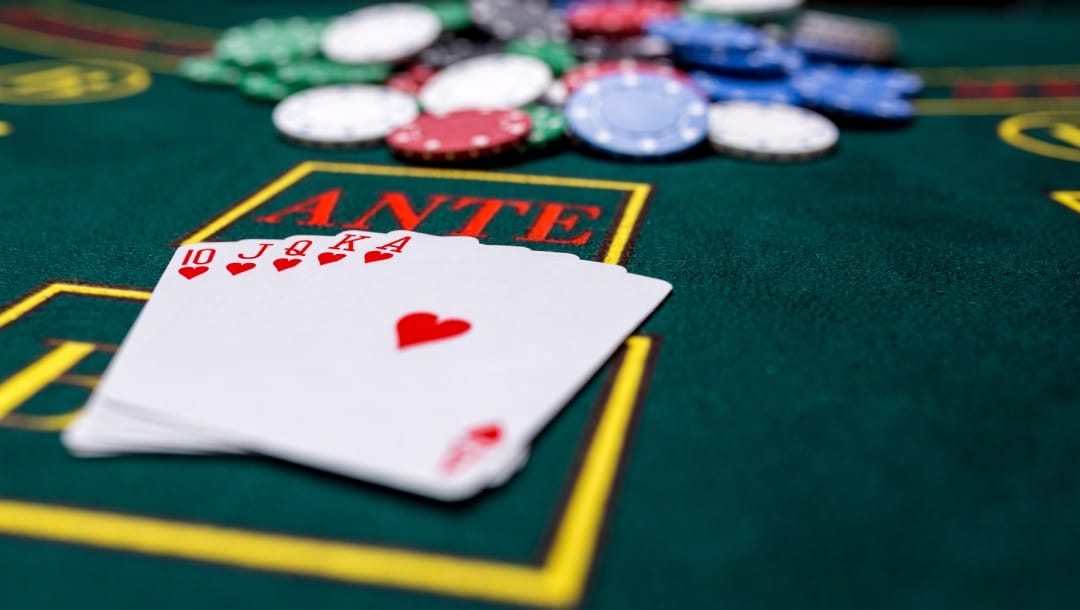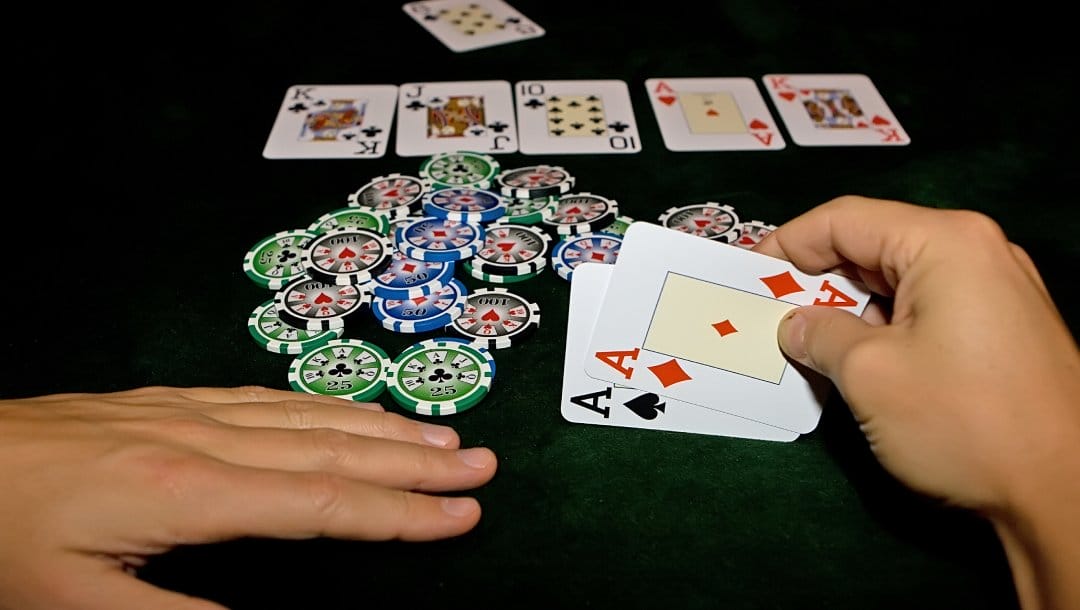
The majority of poker tournament series in live casinos and card rooms, or on internet poker sites like BetMGM Poker, are No Limit Hold’em events. Some series schedules don’t even list the names of the tournaments, as they are all No Limit Hold’em, which may also show as NLHE or NLH.
Some tournament series will include Omaha action, typically in the form of Pot Limit Omaha, more commonly written as PLO.
However, there are more ways to include Hold’em and Omaha in tournament series, as Limit Hold’em (LHE) is popular with some sets of players. Omaha fans also enjoy variations like Omaha Hi/Lo, also known as Omaha-8, Omaha 8-or-Better, or simply O/8. With Omaha’s growing popularity in online rooms and live poker venues, series may also feature games like 5-Card PLO or 5-Card PLO Hi/Lo, 6-Card PLO, and even unique styles like Courchevel poker.
For players curious about the diversity of poker styles beyond the typical formats, exploring new and lesser-known poker variants can open doors to a broader tournament experience.
Draw Poker

One of the oldest forms of poker, Draw games distinguish themselves by dealing players a full hand before betting begins and allowing them to discard and draw replacement cards. These games could be a poker variation you can play with friends; they also occasionally appear in professional tournament rotations.
Five-Card Draw
The most recognizable Draw poker game found in tournaments is 5-Card Draw. The action is rather straightforward.
- Each player pays an ante and is dealt five cards, all face down.
- A round of betting ensues.
- Players still in the hand may discard up to four cards and receive replacements.
- Another round of betting takes place.
- The best five-card hand wins the day.
Lowball
There are many variations of Lowball, all using the low hand as the goal to win the pot. The most common in tournaments are Ace-to-Five (A-5) Lowball and Deuce-to-Seven (2-7) Lowball, with sub-categories such as Limit or No Limit, and the 2-7 option is often played as a Triple Draw version.
The basics of these draw games remain the same, complete with antes and betting order. Each player receives five cards face down after the initial betting round, and they can then draw up to four cards. The primary difference between A-5 and 2-7 is the hand rankings. The best A-5 hand is, obviously, 5-4-3-2-A, and the best 2-7 hand is 7-5-4-3-2. Aces do not qualify as low cards. Triple Draw allows for three rounds of discarding and drawing cards, with betting rounds to accompany them.

Badugi
One of the most recent additions to Draw Poker tournament lineups is Badugi. The game takes parts of Triple Draw Lowball, uses blinds, and creates its own game.
The best card in Badugi is A-2-3-4 of all different suits, whereas the worst hand is four kings. If no player has a Badugi hand, a three-card Badugi hand can qualify, as can a two-card hand if there are no three-card Badugi hands. Aces are low cards, and rankings use Lowball rules.
- Each player receives four cards, face down.
- The initial betting round starts.
- Players can discard up to four cards and receive replacements from the dealer.
- Another round of betting leads to another round of drawing cards.
- A third round of betting leads to the third draw.
- A final round of betting determines the winner.
Stud Poker
This broad form of poker is also one of the most common in poker history. Five-Card Stud was the most popular at one time, but today, Seven-Card Stud is the most readily available version of the game. All Stud games involve some cards face down and some up throughout multiple rounds of betting.
The basics of play are not as straightforward as other poker variants.
- Each player receives two cards face down and one card up.
- The person with the lowest-ranking card opens with a bring-in, and betting ensues.
- The dealer delivers another face-up card to each player still in.
- A second betting round ensues, beginning with the player with the best face-up hand.
- The dealer gives another face-up card to each player.
- Betting ensues, followed by another face-up card dealt and another round of betting.
- The dealer gives remaining players one face-down card, and betting happens again.
- The player with the best five-card poker hand wins.
Those wanting a deeper understanding of Stud variants can review popular Stud poker variants that make frequent appearances in both home games and tournament rotations.
Razz
Often called the game that players love to hate, Razz remains a popular choice, especially in mixed game settings. It is similar to Seven-Card Stud but is played as a low game, so it actually resembles A-5 Lowball.
Razz is a limit game with antes, aces as low cards, and each player receiving two face-down cards and one face-up card. The player with the highest face-up card becomes the bring-in player. Play and betting rounds continue until players have four face-up cards and three face down in total.
The best possible Razz hand is 5-4-3-2-A, as in A-5 Lowball.
Razz is a core component of HORSE and is one of the advanced poker game types for tournament play.
Mixed Games

With so many poker variants and so little time, poker tournament organizers often combine some of the games into a mixed game. The most common type of tournament in this arena is HORSE, which consists of:
- Hold’em (Limit Hold’em)
- Omaha Hi/Lo (PLO-8)
- Razz
- Seven-Card Stud
- Eight or Better (Seven-Card Stud Hi/Lo, Stud-8)
Other versions of this game play as HOSE to eliminate Razz, ROSE to eliminate Hold’em, or HOE to use only Hold’em, PLO-8, and Stud-8.
A common eight-game mix includes the above but also adds regular Pot Limit Omaha, No Limit Hold’em, and 2-7 Lowball Triple Draw.
Finally, a Dealer’s Choice event can combine up to 18 or 21 games. This often includes variations of Badugi like Badeucy and Badacy, Big O, Five-Card Draw High, and 2-7 Razz.
If you’re new to poker or looking to expand your experience, it’s worth exploring the best poker game variations for beginners or examining the most popular poker variations featured in live and online events. Many of these styles even stem from Texas Hold’em poker game variations that evolved over time.
Play Mixed and Specialty Poker Tournaments at BetMGM
Poker tournaments go far beyond Texas Hold’em and Omaha, with formats like Razz, Stud, Badugi, and mixed-game rotations such as HORSE offering variety and depth to the tournament landscape. These diverse formats provide opportunities for strategic growth, creativity, and fun for players at every skill level.
Whether you’re a fan of old-school Draw games or ready to try something new in Dealer’s Choice events, BetMGM Poker gives you access to a full spectrum of tournaments. You can play poker online from the comfort of your home and take advantage of a generous poker welcome offer to maximize your initial bankroll.
Sign up today to experience the full world of poker formats with one of the leading platforms in online poker.
Extensive poker tournament series can offer a wide variety, including the ultimate mixed game.


